
Abstract: This paper reports part of a larger study on the development of systems thinking skills in German 7th grade comprehensive school students regarding the climate. Research has shown a fragmented understanding of climate change among students that hardly accounts for the dynamic interrelations in the climate system and may pose a barrier in understanding adaptation and mitigation strategies (Shepardson et al., 2017, 2011, Calmbach 2016). While much is known the impact of short-term interventions on the general system understanding of students, what is lacking to date is 1) a specific intervention on climate system understanding and 2) insights into the process of developing system understanding in students. Helpful insights in this context come from Conceptual Development theories for they allow the development of systemic thinking to be viewed in terms of conceptual expansion or conceptual change. Starting from these desiderates, a teaching-learning sequence was developed based on the SYSDENE model of system competence (Frischknecht et al. 2008). In the sequence young learners systematically link experiences from formal science education with the experiences at three non-formal learning environments. A mixed-methods approach was used to explore the impact of this 3-month sequence on 19 7th grade students. A written pre-/post-test suggested a significant improvement in Climate System Reconstruction for the group (pre-test Median = 6.75 vs. post-test Median = 12.5, Wilcoxon Test: p = .003, r = .82). However, a qualitative analysis of classroom conversations, interviews and concept maps indicated that cognitive development toward a higher level of system thinking was neither continuous nor did every student reach it. Moreover, the SYSDENE model’s Competence Area “Describe System Model” proves critical. Being able to describe the main climate system factors is not sufficient, one also needs to be able to distinct weather from climate and grasp several scientific concepts related to the climate (e.g. greenhouse effect, water cycle, evaporation, reflection) in order to understand climate as a system.
Continue Reading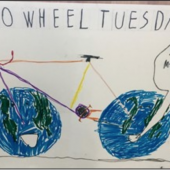
Sustainability education has changed identities a number of times over the last decades. How might whole-school sustainability (WSS) prepare students to address current global issues? A focus on teaching the Sustainable Development Goals (SDGs) creates opportunities for students to develop systems thinking and to learn to take civic action. We visited four schools in the United States to observe and document replicable models of K-12 WSS. In our research, we used a mixed methods approach to code data from interviews, classroom observations, and school campus tours. Results from a case study analysis of four K-12 schools map out pathways toward implementing and refining WSS education programs to include the SDGs, systems thinking, and civic action.
Continue Reading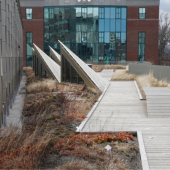
Abstract: Higher education campuses play an important role in developing visionary models of sustainability that integrate campus facilities, student learning, and research. We reflect on a series of visits to campuses within New York state utilizing systems thinking analysis of sustainable initiatives finding interconnections between buildings, pedagogy, and campus life. Campus infrastructure-systems, curriculum, and campus actors present agentic interconnections that contribute to teaching the campus community about sustainable systems. Our journey presents three big ideas for conceptualizing our encounters: wayfinding, defining occupancy, and implementing a vision that articulate how campus spaces and green infrastructures exert agency in teaching us about sustainable living. These big ideas are explored to conceptualize and reflect on our role as art and design faculty to use our workplace and hence campus life as a context within which to speculate on sustainable living.
Continue Reading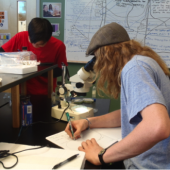
Abstract: This theoretical and conceptual article explores the connection between systems design in education, specifically curriculum design, and critical pedagogy, the educational adaptation of critical theory. The author presents the well-established concept of how the industrial standardization of education stems from the imposing of linear structures onto curricular design, inherently suppressing students and communities to have greater control on their educational experience. While there have been great gains in sustainability education, it is self-defeating to the systems thinking nature of sustainability to have sustainability instruction follow traditional linear formats. The author discusses some essential concepts to systems thinking and systems design, and then explores many of the preeminent authors of critical pedagogy and their respective viewpoints. In the discussion, the author interweaves how a systems approach to curriculum design can help meet calls made by critical pedagogy theorists, possibly alleviating some of the oppressive curricular norms assumed by industrialized linear education.
Continue Reading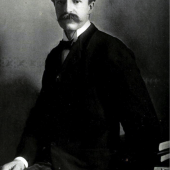
Some scholars of leadership for sustainability argue that more research needs to be done on the ‘who’ of leaders, the core drivers of the ‘what’ and ‘how’ of their decisions and actions. This paper looks at a leading US figure in sustainability, Gifford Pinchot, who led the establishment of the US Forest Service, and who devoted much of his career to conserving the natural world for the good of his fellow citizens. It describes the formation of the ‘who’ of Pinchot as an adult leader through a focus on his early learning environment in order to point to some essential and timeless principles for the education of leaders of sustainability.
Continue Reading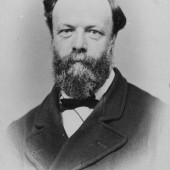
Abstract Innovation for sustainable environments is typically thought of as synonymous with the scientific and the future. This paper argues that historical stories about innovation to create sustainable communities in the past has a contribution to make to research and teaching in the field. It outlines the innovation of forestry in Australia in the nineteenth century, and the thought leadership of the prominent public servant who realized it. It argues that, together with science, students of sustainable environments need to learn to think holistically, framed first by an ethical vision of what a sustainable civil society looks like.
Continue Reading
In our state of acute global crisis, we urgently need new leaders. In this short essay, I would like to sketch out my vision of such a new kind of leadership.
Continue Reading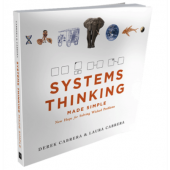
In this book review the author summarized the text, Systems thinking made simple: New hope for solving wicked problems by Derek and Laura Cabrera (2015). In the text, cognitive thought is described as a complex adaptive system and four simple rules of thinking are included as an approach to problem solving.
Continue Reading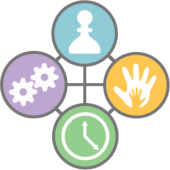
The Sustainability Education Framework for Teachers (SEFT) intends to build a capacity for educators to be able to understand: (i) the broad, complex nature of sustainability, (ii) the problem-oriented, solution driven nature of sustainability, and (iii) how sustainability connects to them as both citizens and classroom teachers. SEFT embraces four ways of thinking––futures, values, systems, and strategic which are conceptualized as being bi-directional and interconnected. The framework aids in linking sustainability topics that are seemingly disparate to the novice teacher population by building upon knowledge, skills, and attitudes necessary for problem solving with respect to complex sustainability challenges. Imagined as a conceptual framework, it offers organizing principles for examining and considering sustainability problem/solution constellations in a coherent fashion. The framework provides the opportunity for self-reflection and independent enquiry by considering and learning through real world foci. Likewise, SEFT offers a logical framework for working in interpersonal, intragroup, and intergroup situations. The four lenses require considering critical inquiries related to societal values, equity, and visions of the future; unpacking the status quo; and exploring and articulating pathways towards a sustainable tomorrow.
Continue ReadingPDF: BollmannandKunzandFrishknechtSpring2014 Key words: Sustainable Development, Systems Thinking, SYSDENE, multi-dimensional Learning Outcomes Learning Outcomes Enduring Understandings/Big Ideas: Before you even start with Sustainability Education, it is necessary to work on the attribution of significance of Sustainable Development (SD). Pupils, students, teachers or lecturers alike: they all need to recognize sustainability as something important and significant […]
Continue ReadingPDF:AndresSpring2014 Key Words: Sustainability Education, State of the Field, EdTracks, Systems Thinking Learning Outcomes Enduring Understandings/Big Ideas: Systems thinking, interdependence, human/nature connections, the self and well-being, patterns of nature and of human systems; viable economies, social/equity concerns, stewardship, respect for nature’s limits; regeneration, intergenerational thinking, resilience thinking, Content Knowledge: Ecological economics, systems theory, […]
Continue Reading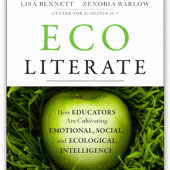
Daniel Goleman, Lisa Bennett, and Zenobia Barlow, in their book Ecoliterate: How Educators are Cultivating Emotional, Social, and Ecological Intelligence, share the stories of a new generation of educators and activists that are displaying the five practices of socially and emotionally engaged ecoliteracy: developing empathy for all forms of life; embracing sustainability as a community practice; making the invisible visible; anticipating unintended consequences; and understanding how nature sustains life. This book provides useful examples and serves as a guide for educators interested in developing a sustainability-focused learning environment for their students through the framework of ecoliteracy. The purpose of the following review is to first present the purpose, argument, and organization of Ecoliterate, and to then evaluate the claims and implications it presents for practitioners of sustainability education.
Continue ReadingThe purpose of this study was to determine systems thinking skill development among undergraduate students and assess the effectiveness of two different instructional methods for increasing these skills. Undergraduate students from two four-year state institutions, one located in the Midwestern region (n=20) of the United States and one in the Southwestern region (n=16) participated in the study. To accomplish the research object, the study employed a mixed between-within subjects experiment. Employing two different systems thinking teaching interventions, one group of students was exposed to a one-time intervention while the other group was exposed to a more extended and holistic intervention. Data were collected at two points in time: pre- and post-intervention. At the beginning (pre-intervention) and end (post-intervention) of one semester, students read case studies describing apparel firms’ sustainability efforts. The students were then tasked to identify sustainability challenges, analyze conflicts between challenges, and offer business recommendations. Using a rubric, the authors scored the students’ responses on a scale of 0 to 5 and assessed ability to 1) think holistically and 2) perceive interrelationships and resolve resulting conflicts. T-tests revealed that prior to the teaching interventions, as a whole, the students had unsophisticated skills related to their ability to think in systems. ANOVA revealed that, through instructional methods focused on systems thinking, it is possible to increase students’ ability to think in systems. Additionally, the study revealed that, compared to a constrained one-time intervention, a long-term, holistic, and integrated approach is significantly more effective in encouraging students’ system thinking competencies. Results of this study support the need for educators to integrate teaching methods designed to increase students’ systems thinking competencies holistically throughout course curriculum. Additionally, the study outlines a transferrable approach to assessing systems thinking skills within postsecondary education.
Continue Reading
In this clarion call for broad-based change in the way buildings are designed and built and occupied, Papesch and his colleagues bring attention to the broad swaths of society that are involved in this fundamental aspect of our daily lives. While bringing into play diverse groups of lay people and professionals, from poets to engineers, with a focus on architects and designers, they call for changes at every level, from the development of a Green Mindset among the population at large, to local governmental code changes to, as they argue most importantly, fundamental changes in design curricula that lead to the primacy of an interdisciplinary approach to climate change mitigation in building design.
Continue Reading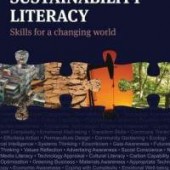
In this detailed and insightful review, Laura Henry-Stone admires the breadth and cohesiveness of this edited volume from mostly European sustainability educators. She makes a good case for bringing this wide array of pieces under one cover, for avoiding static definitions of sustainability, even the traditional “triple bottom line”, and rather looking outside reductionist approaches to find integration, inter-relation and the kind of broad strokes that the chapters in this book propose for educating and solving for sustainability.
Continue Reading